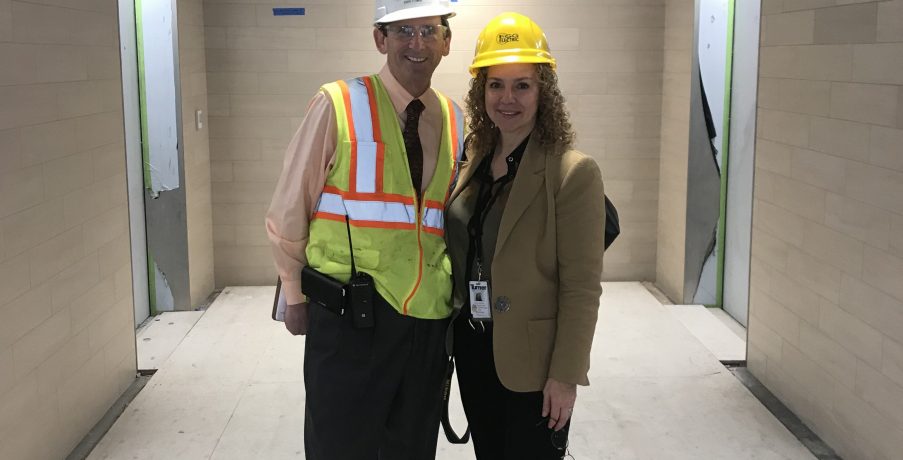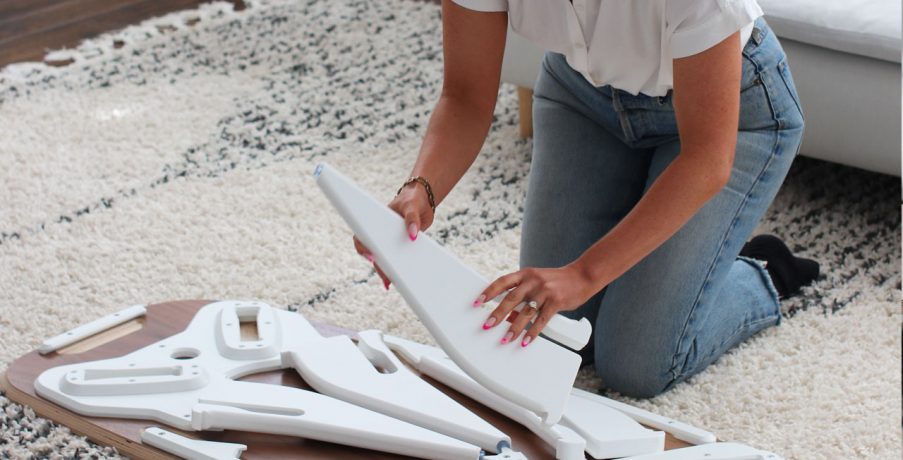
Neil A. Carousso produces NewsNation original “Kurt’s Country” – a celebration of country music and a slice of Americana with host Kurt Bardella.
-
Despite Uncertainty and Tech Layoffs, City Small Businesses are Growing Again
Post Views: 487By Joe Connolly and Neil A. Carousso
NEW YORK (WCBS 880) — It appears small and midsize business owners are optimistic about their growth prospects for the rest of this year despite recession fears on Wall Street.
“They see more opportunities for growth, for bringing in revenue,” said Cory Schouten, editor-in-chief of Crain’s New York Business on the WCBS Small Business Spotlight, sponsored by Dime Community Bank.
“The catch there is that small and midsized businesses are seeing their costs increase, substantially, including their labor costs,” he added.
Crain’s recently surveyed the leaders of small and midsize businesses and found two-thirds of them expect their revenue to increase this year, but the same amount are seeing their costs rising. Half of those businesses expect to maintain staffing levels and, in fact, some report that they are hiring.
“A lot of companies are seeing this as an opportunity to go hire some tech talent that has been really impossible to hire, has been outside of their budget, but with some of the cutbacks in tech, other companies are snapping those people up,” said Schouten.
Some of those companies are raising capital and have even turned profitable.
Manhattan is an outlier in the city’s pandemic recovery, which has been more robust in the outer boroughs due to remote and hybrid work. Jobs have still not reached pre-pandemic levels.
“Office owners are updating their properties, so they’re very modern, they’re very adaptable for a flexible hybrid work environment. And, also, those owners of older office buildings in the city are looking at residential conversions,” Schouten said.
The Partnership for New York City reports office occupancy might remain at 56 percent for the foreseeable future, which is leaving the city with excess office space and few housing options until office buildings are converted. That continues to make Manhattan unaffordable for many employees.
“Right now there’s an office glut, but there’s not enough housing in the city. So, those two things can work together and kind of give us all a path forward,” said the Crain’s editor-in-chief.
Watch the WCBS Small Business Spotlight video above to see how local businesses are finding ways to grow.
You can read Crain’s New York Business’ economic outlook for 2023, available for free to WCBS 880 listeners, here.
-
Trailblazing Woman Breaks Down Barriers in Construction and Renewable Energy
Post Views: 759By Joe Connolly and Neil A. Carousso
NEW YORK (WCBS 880) — There are few women in construction, electricity and renewable energy. But, Ellen Aschendorf has broken down barriers in each of these industries.
Aschendorf started a construction-related business more than 30 years ago. Today, she’s on the leading edge again with her company Egg Electric, Inc., which specializes in commercial electricity and renewable energy projects.
“People didn’t just accept me,” Aschendorf said on the WCBS Small Business Spotlight, sponsored by Dime Community Bank.
Her mentality: “I was going to finish the job, do everything correctly, and give excellence.”
Aschendorf said her superior work spoke for itself and became the only sales apparatus she needed when men in her industry would hang up the phone after finding out a woman led her company. Egg Electric relies on referrals and repeat clients, including Facebook, NYU Langone Health and Hudson Yards.
“We did two buildings for the business school for Columbia University,” she said, continuing, “We’re working for mostly the big corporate world as in right now we have projects going on for Facebook at 50 Hudson Yards, for Amazon at 424 Fifth Avenue, we’re doing a DDC (Department of Design and Construction) garage project in Queens, which has the EV, we’re doing the hospital for a long client NYU Medical.”
Many of Aschendorf’s clients have been with Egg Electric for decades. In fact, one of their early clients was the New York Mets. Electricians from Egg Electric were present at every home game at Shea Stadium to operate the scoreboard in right field. Company electricians still work with the Mets at Citi Field.
The company started building cell phone towers in the 1980s.
“So we started doing, right from the beginning, different work. And traditionally people were either, you did hospitals, schools, commercial, residential. You did one of those, but I didn’t know any better. So I started going wherever the jobs were.”
That ability to be nimble allows Egg Electric to follow sales in a changing industry. Today, they’re one of the companies building New York City’s electric vehicle infrastructure.
“(DDC) had us put a tremendous amount of infrastructure for phase two, like putting in empty pipes for future EV charters. That tells me that the city is already thinking about the future and they were expecting this to increase more and more,” said Aschendorf.
Watch the WCBS Small Business Spotlight video above.
-
Top Business Leader Calls New York’s Post-Pandemic Economy an ‘Industrial Revolution’
Post Views: 573By Joe Connolly and Neil A. Carousso
NEW YORK (WCBS 880) — New York City office occupancy recently surpassed 50 percent for the first time since COVID-19 hit in 2020. That’s positive news for corporate executives, but it does not tell the full story of what’s happening in the city’s economy.
Kathryn Wylde leads the influential Partnership for New York City business group that represents corporations, including Goldman Sachs, Amazon and JP Morgan Chase & Co., and conducted that office survey. She told the WCBS Small Business Spotlight, sponsored by Dime Community Bank, that 82 percent of office workers are now enjoying a hybrid schedule.
“Prior to the pandemic, we’re talking about maybe 6 percent of the employers allowing people to work remotely,” said Wylde.
That’s the new normal or what the Partnership for New York City president and CEO labels a new “industrial revolution.”
“In the 70s, we had a dramatic experience of going from the old industrial economy to the service economy. Well, this is from the service economy to the digital economy. And instead of happening gradually over one or two decades, it happened instantaneously.”
Wylde noted entire industries have changed to be centered around technology.
“We have remote education, telemedicine, remote health, we’ve got remote work, remote entertainment, remote cultural experiences,” she said. “All of that has changed and I don’t think we know the implications yet.”
Wylde, like many traditional business leaders, believes strongly in in-person work, but she acknowledges Zoom has its place.
“We can fit more into our day when we can do Zoom instead of running to Midtown,” she said. “We just have to learn how to use that tool in a way that doesn’t interfere with building relationships and with the kind of mentoring and support and development that particularly young people need in their careers.”
Remote work has held back Manhattan’s recovery. The Partnership for New York City sees small and mid-size businesses in the outer boroughs and the suburbs growing at a record clip, but shrinking in Manhattan as rents remain near record highs.
“We have 32,000 new businesses formed in New York City in the last year. Manhattan’s the only one that didn’t have net growth in new businesses. Most of them are in Queens. Brooklyn is the number one. So, we’re seeing the city as a whole – its neighborhoods, its local business districts across the five boroughs and our surrounding suburbs – the economy’s pretty good,” said Wylde.
The main reason business groups see growth in the outer boroughs and the suburbs is that remote work has enabled people to shop in their communities during the week. Wylde said she is confident in Manhattan’s resurgence but it may take some time.
“The value of Midtown properties is going to spring back and it’s not going to be exactly the same as it was pre-pandemic. We’re going to see more residential, I think we know that, and that’s a good thing. It’ll make the streets safer on a 24/7 basis. It’ll bring back customers to local business.”
Watch the full conversation with Kathryn Wylde on the WCBS Small Business Spotlight video above.
-
Pro Dancer Launches ‘Unconventional’ Dance Studio for Underserved New Yorkers
Post Views: 456By Joe Connolly and Neil A. Carousso
NEW YORK (WCBS 880) — A new type of dance studio is coming to New York City.
Busola George is an accomplished dancer who started SoL-I Movement Center to improve access to dance rehearsal spaces in Manhattan that are more affordable. Rehearsal spaces in the borough, she says, can cost dancers upwards of $40 an hour, which can add up quickly given the time needed to perfect the craft.
“The need I saw was at the foundation, the access to affordable rehearsal space, as well as the need for a community,” said George on the WCBS Small Business Spotlight, sponsored by Dime Community Bank.
“SoL-I Movement Center is a studio that uses an unconventional shared space model to offer affordable rehearsal space to aspiring professional dance and theater performers as well as offer career advancing services, wellness classes, and professional training.”
Career guidance, mentorship and networking is what separates the center from other dance studios. George’s classes also add socialization and wellness techniques, including meditation.
“I’ve pivoted in the sense of adding kind of more services, more nuanced services, and also really zoning in on who my target market is,” she said. “I was able to realize how much community is needed for dancers and how they don’t really have that. That’s why some of the services that we have are going to induce a collaborative environment for dancers.”
George recently won the grand prize of $20,000 at the Brooklyn Public Library’s PowerUP! business plan competition.
Watch the Small Business Spotlight video above.
-
Small DIY Home Furniture Business Turns to Organic Social Media Content to Elevate Engagement
Post Views: 490By Joe Connolly and Neil A. Carousso
NEW YORK (WCBS 880) — Digital advertisements were a slam dunk for businesses during the COVID-19 pandemic, but recent changes to Facebook and Instagram’s algorithms have made it difficult to break through and expensive to generate sales. A Brooklyn home furniture company found a strategy that works for their business.
Hoek Home creates modular, quick assembly desks, tables and stools from their factory in Brooklyn. Brian Chu and Conor Coghlan started the business after hearing from family and friends about how difficult it was to set up and move furniture.
“It’s not really about an aesthetic for us. It’s more about a system and simplifying people’s lives,” said Coghlan on the WCBS Small Business Spotlight, sponsored by Dime Community Bank.
Coghlan and Chu met while studying architecture at the Harvard Graduate School of Design. They reconnected years later to start their own design and fabrication firm, A05 Studio and later Hoek Home.
Initially, Hoek Home got a sales boost by promoting their home office videos on Facebook and Instagram. Within the last few months, their customer acquisition costs have skyrocketed. Now, they rely on user-generated content.
“We would ask our customers to send videos of themselves assembling the desk and share it on their story. So essentially what we’re trying to do is advertise through word-of-mouth,” Chu said.
They’ve also partnered with micro-influencers to promote their furniture on social media.
“We’ve gained quite a following through some partners that we work with, some advisors that have really helped us out,” said Chu.
Hoek’s Home Office Desk sells for $495 on their website and accounts for 60-70% of their sales.
“It really offers a huge amount of value to have your desk set up during the week, and then, say you’re having friends over for dinner, you’re having a party on the weekend, and you just need that extra space, you just click it back together. You can hang it on the wall, you can slide it under your bed,” Coghlan said.
Coghlan and Chu say listening to customers’ feedback has helped them grow. They even have a whiteboard in their factory with a list of what they call “expanded ideas.”
“We actually have outreach to our customers to hear what their experiences are with the furniture that they have so we can take their comments and really try to fine-tune and tweak certain portions of our design to to come up with a new product or a new feature or just make the product better,” said Chu.
See growth ideas on the Small Business Spotlight video above.











